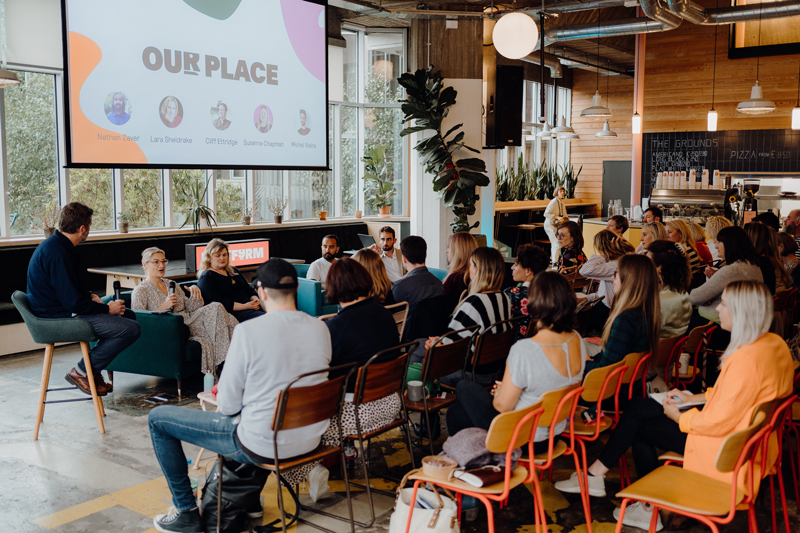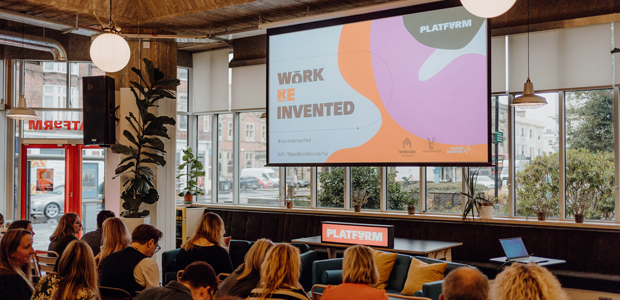
‘Work reinvented’ – what does that look like?
On 23rd September, Platf9rm – a membership workspace in Brighton that connects communities of creative professionals, artists, and entrepreneurs, providing inspirational environments in which members’ businesses flourish – held an all-day event called Work Reinvented.
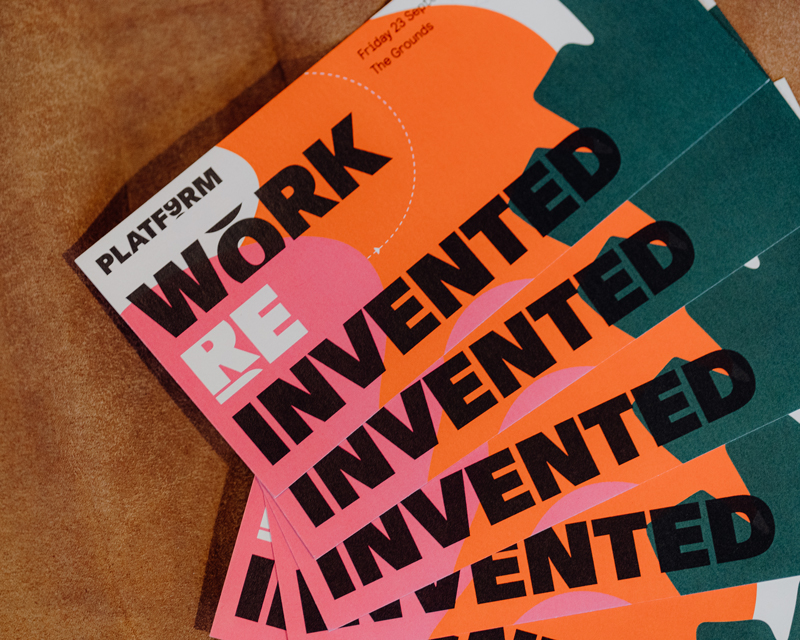
Work Reinvented brought together the brightest heads in business to explore what ‘work reinvented’ really looked like, especially after March 2020 when we shut down our computers and left the office. This moment altogether changed many things within work, especially with where the future lies for offices and workspaces.
The day was spent considering how people, place, and purpose are all contributing factors to the new business landscapes that we are seeing today and what’s coming in the future.
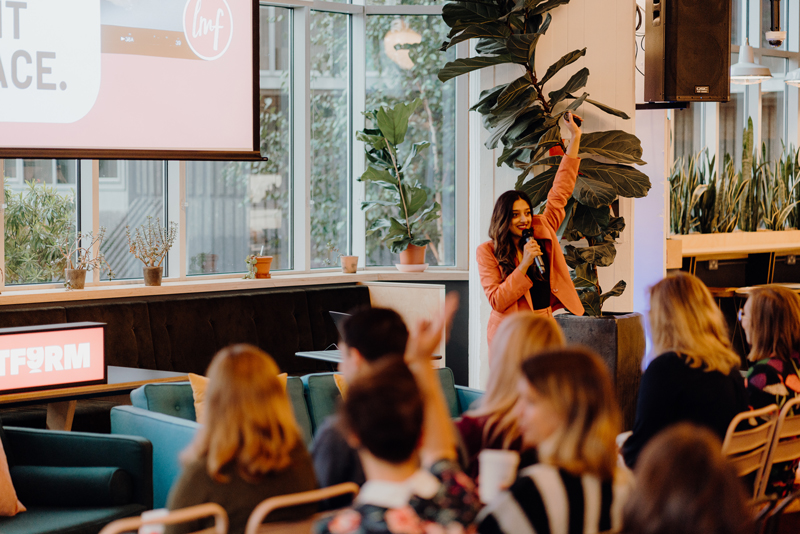
It started with a keynote from Sonya Barlow, Founder of Like Minded Females – a careers platform and inclusion consultancy bridging the skills gap through masterclasses and mentoring – who discussed the concept of confidence and imposter syndrome.
She noted how 79% of people lack confidence in work and themselves, with most people only feeling confidence if they have their ‘shield’. For Sonya this was her lipstick – before doing a talk she had to put her lipstick on to feel confident. When thinking about it, don’t we all have some small thing we might hide behind? Whether that’s a lipstick, a certain piece of clothing or a prop.
A lack of confidence can lead to people feeling like imposters. And imposter syndrome is a phrase that is constantly being thrown around, but does anyone actually completely understand it?
Sonya Barlow spoke about imposter syndrome and mentioned how it was a concept made up for women. It was a phrase to help downplay women’s achievements because women weren’t meant to be earning the most money, owning their own businesses or being a CEO of a big company. So, for people to understand why this was happening was to act like they were an imposter to who they were, rather than congratulating them on what they’ve achieved.
There are five types of imposters; do you know which one you are?
- Superhero
Work overload. The person who tried to do everything and won’t let anyone help them.
- Natural genius
High goals. The person who always got A*’s etc and set their goals so high that sometimes they are unreachable.
- Perfectionist
Never happy. The person that no matter what they have done is never happy with the work and thinks it needs to be better.
- Expert
Never satisfied. The person that no matter what level they are at in their career is never satisfied and thinks they could be going higher.
- Soloist
Never asks for help. The person that no matter how much work they have or get given and they may be drowning they will never ask someone to help them as they need to do it all themselves.
The main outcome from Sonya Barlow’s keynote was that no matter how you are feeling or what you are doing, you need to be your biggest cheerleader because, no matter what everyone else thinks, you need to believe in yourself. That’s where true confidence will come from.
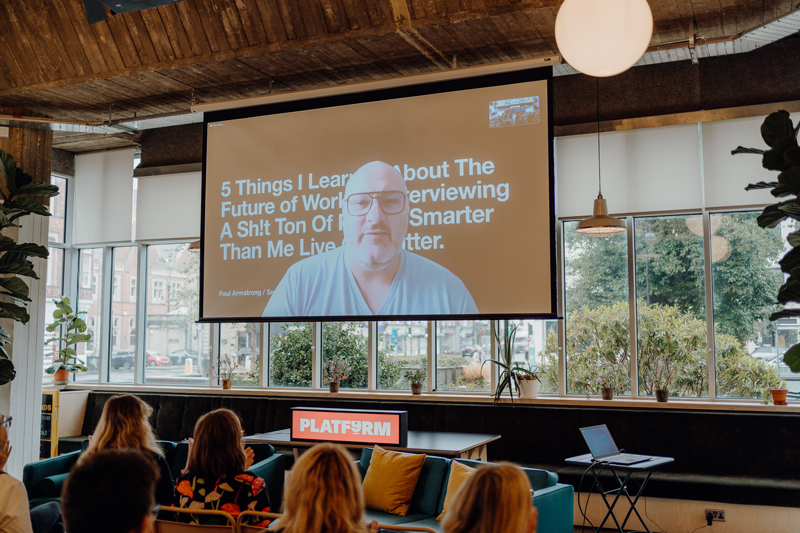
The next talk was from Paul Armstrong, a leading strategist, author, and speaker on the future of technology, disruption, and innovation. He spoke about the future of work and how the youth of today do not want to go back to the office because they have seen a life where it can be done from anywhere, at any time as long as the work is done.
He spoke about the great resignation and how it doesn’t exist, that instead, it’s the ‘great renegotiation’. People aren’t leaving their jobs or resigning, they are going into renegotiation because they know they are worth more.
After all this, he spoke about coworking and how it is the most forward-thinking process for the office and how coworking is the look at what the future of work and the future of the office should be.
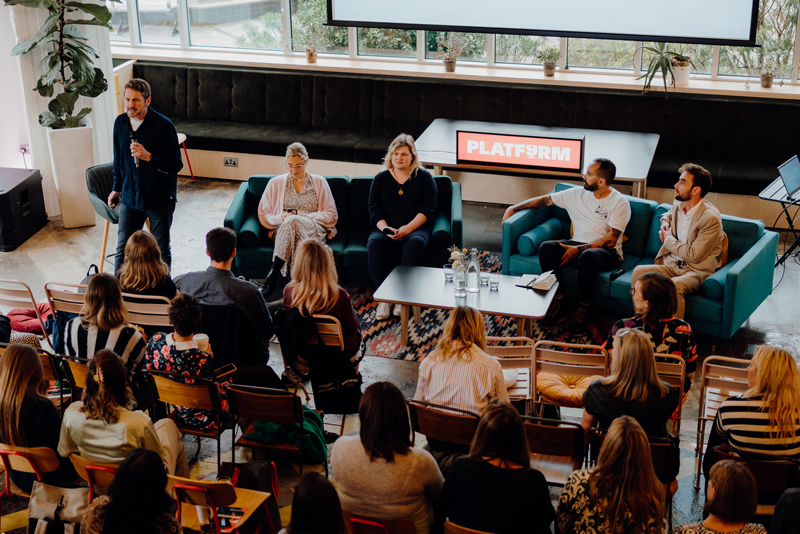
The Work Reinvented event also presented a panel hosted by Cliff Ettridge, Partner at The Team – advocate for the brand and employee experience – with panellists, Lara Sheldrake, Founder of Found & Flourish, Michel Viera, Metaverse Architect, Susanna Chapman, Product Specialist & Diversity & Inclusion Champion for Neurodiversity at Bulb Energy and Nathan Zaver, Senior Designer at We Like Today, who discussed the five points of the future of the workspace.
- Purpose
- Connected
- Wellbeing
- Growth
- Flexibility
Cliff started off the panel by announcing how 80% of bosses don’t think employees are productive from home, however, 87% of people think they are more productive from home. So, it does depend on the trust you have in your company and employees, and it also depends on your environment at home or in the office – which one are people more productive in?
Coworking was once again mentioned – it’s showing the future of how office environments should be for employees. It is all about the attitude and culture more than the physical workspace for most or all employees.
The panel discussed how flexible working is a better forward-thinking process to working than for a company to just decide whether you work fully from home or from the office. This is because people are different. Some people like or need to be in the office like Susanna Chapman explained how she has ADHD and working from the office and having consistency with having a place to go every day, the same desk, the same things, etc. works well for her and that she could never work from home as she would get too distracted. However, you do have people that work better fully from home because in the office they’ll get distracted by the people and conversations going on. Finally, you’ll have people who would like it both ways – to come into an office and see the team but also know they work from home to concentrate and maybe have meetings in quiet. This shows that as a company you should maybe think more about what your individual employees would like and what would help them work better. In the long term, this will work out better for your business.
